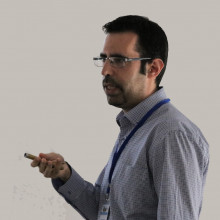Ensuring the quality and authenticity of two products important to the national economy, such as olive oil, which is at the top of products prone to fraud over time, and table olives, in addition to enhancing their added value, is a matter of major national interest. Since March 2017, the EU has set up authenticity labs essentially monitoring the authenticity (and by extension the adulteration) of food in general.
The implementation of this project includes a combination of classical chemical, biochemical analytical techniques and analyses using new specialized technologies and techniques to check the quality and authenticity of olives and olive oil end-products.
The main objectives of the project include:
(a) olive oil: the development of a digital library/database based on analyses (classic chemical, organoleptic, spectroscopy, and cutting-edge technological analysis) of a large number of olive oil samples from mills throughout the country and from the retail market, combined with pre-existing data. All this data, together with the results of the genomic analysis of the remaining sub-projects, constitute the digital footprint of each sample and will allow the complete characterization of the Greek olive oil that will document the uniqueness of each product. On the basis of the above analyses, models will be developed to distinguish samples on the basis of variety, region, freshness, whether a "test" sample is conventional or biological, whether it deviates from the olive oils of the base (with this comparison indicating rigging) and whether it includes substances at concentrations such as to give it particular nutritional characteristics in order to obtain a Health Claim.
(b) table olives:
1) the application of post-genomic analysis for the mapping of the microbiome of iconic varieties of table olives (Conservolia; Kalamata, Halkidiki) during their traditional processing in different geographical areas of Greece, 2) the biogeographical association of the table olive microbiome with the different olive processing areas, 3) the recording of the ecosystem in the final processed product using classic microbiological analyses , and 4) the organoleptic assessment of the finished processed product and the correlation of organoleptic parameters with the different flagship varieties and geographical area of origin.
At the same time, three information workshops will be held within the framework of the project (Heraklion, Kalamata, Mytilene) on the results of the project and on the education of consumers, producers, mills and standardizers on olive oil quality issues and the factors affecting it, authenticity of olive oil, certification of products, health claims and use in product labelling and fraud control as well as consumer actions (consumer behaviour research on the fraud and selection of olive oil , brochures).
The results of this subproject will create databases and protocols with quality product characteristics for its certification, upgrading and competitiveness. The results will be directly usable by the participating bodies and by associations and companies active in the field of olive oil production, standardization and movement.
Equally important is the creation of a network of cooperating bodies with complementary research and analytical action, which will allow the activity to continue after the end of the two-year duration of the project.
Principal Investigator
Technical Staff
Research Associates
Alumni
Verifying the Geographical Origin and Authenticity of Greek Olive Oils by Means of Optical Spectroscopy and Multivariate Analysis
Olive oil samples from three di erent Greek regions (Crete, Peloponnese and Lesvos) were examined by optical spectroscopy in a wide spectral region from ultraviolet to near infrared using absorption, fluorescence and Raman spectroscopies. With the aid of machine learning methods, such as multivariate partial least squares discriminant analysis, a clear classification of samples originating from the different Greek geographical regions was revealed. Moreover, samples produced in di erent subareas of Crete and Peloponnese were also well discriminated. Furthermore, mixtures of olive oils from different geographical origins were studied employing partial least squares as a tool to establish a model between the actual and predicted compositions of the mixtures. The results demonstrated that optical spectroscopy combined with multivariate statistical analysis can be used as an emerging innovative alternative to the classical analytical methods for the identification of the origin and authenticity of olive oils.
Funding









